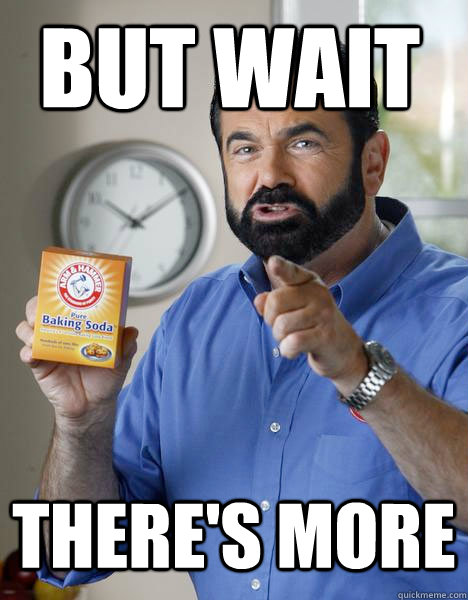Hey everybody! So this concludes my
last week of conducting my independent research! This past week has been
nothing short of interesting as it has been filled with work, research, and the
most intense job interview of my life (I wish I could tell you more but its
classified!). While I enjoyed talking with teachers and observing their classes
to get a better understanding of the school community, I am excited to focus on
analyzing my data. With that being said, I have a lot of work to do during this
next week.
During the data collection process,
I collected 14 surveys, observed 26 classes for five teachers, and interviewed
8 teachers and one administrator. Now that I am done collecting all of this
information, I need to meticulously go through it all to identify the themes
common throughout all of the data. Going into the data collection
process two weeks ago, I knew what type of information I was looking for, but I
had no idea how I was actually going to go through the information and do the
analysis. This was one of the most serious problems I had with my research for
quite a while. My biggest problem was that I was going to be doing a
qualitative analysis, so there were no rigid procedures that I could follow
like with a quantitative analysis. Because of this, I spent a lot of time over
these past couple weeks reading ethnographies and literature on how to perform
qualitative research to ensure that I used proper analysis techniques.

From this reading, and the
developments I made in my research along the way, I was able to develop my
methods for how I am going to do my analysis. The first step is to transcribe
all of the audio files that I have from the interviews. This is probably going
to take the most time for my analysis because I have over 3 hours of audio that
I need to transcribe by hand. While this will take a long time, I believe that
transcribing these interviews (in addition to already transcribing my notes I
took during the interviews) will help me to identify the most important themes
present in these conversations. Once I have all of these interviews
transcribed, and have noted the most important themes present in these
interviews, then I am going to compare all of the teacher responses for each
individual question to see if there is a consensus for the responses given to
these questions. This should result in the identification of the main themes
present throughout these interviews.

In addition to the interviews
though, I will be using similar methods for the surveys. Although the majority
of my data analysis will come from the interviews, the surveys will be a useful
validity check. Since the survey respondents are anonymous and I had no control
over which teachers took the survey, they provide a random sample of teachers. Because
of this, I can compare what these teachers said to the teachers I chose to interview
to see if there is a variation in the responses provided.
Finally, I am going to use my
observations as a second validity check. Because some of the questions asked
involved student-teacher interactions and the classroom environment, then these
observations will be useful in seeing if what the teachers said correlates with
what actually happens in the classroom. By the end of all of this, I hope to
understand what the most common responses among these methods are, so that when
I do my discussion, I can use these themes to understand what characteristics
actually make this school successful and why.
So that’s all for this week! I
apologize if this post was a little longer than usual,
but I found it useful in collecting my thoughts. Until next week!
(639 words)

BZ!
ReplyDeleteLong time no see... wow, it's really impressive that you got all of your data collected and even got in that classified job interview... awesome job staying on track and getting stuff done, like you have all year! Before even reading your blog post, I was curious to see what your plan is for data analysis, since I have not read/experienced a lot of phenomenological/qualitative studies.
I like the idea of transcribing your data by hand, but I think you could systematize the finding of your themes slightly perhaps. One idea might be listening/reading everything and recording key words/themes/phrases to classify parts into, and then re-listen/read and transcribe then. This way, you may interact more with your data, and you have systematic categories that you probably couldn't arrive at without actually interacting with the data (i.e., you couldn't get it from a lit review).
Also, while you probably put in a lot of time and brute force to collect your data, this analysis will be a lot of work that also requires a lot of thought. But it's worth it -- I'm really excited to see what you find.
Good stuff,
Yash
(198)
Hey Brian! I also haven't read your blog in a while so I feel a little bit behind (but no big deal, I'll catch up). First, there are definitely programs that will transcribe recordings for you. That being said, I'm sure you already know that and there are reasons that you're not using those programs? Why not make it easier on yourself?
ReplyDeleteIf you haven't started transcribing yet, what are some themes that you're anticipating to find? How are you going to organize these themes once you start finding them? Do you have an ideal of what your results section is going to look like?
Keep chugging on!
Hey Brian! Great job collecting all of the data. ^ I agree with Kristiana in that you should look into programs that transcribe things even if they may not be 100% accurate because it will be easier for you to fix it and fill in the gaps that listening to it and pausing every 10 seconds to write down the transcript. I am going to assume you are doing a thematic analysis for art of your paper, how do you plan to keep the analysis as objective as possible? What are your parameters? Additionally, I think your validity for checking the survey answers with your observations is a bit biased as you were the only research watching, so you are going to have to make sure in your paper that you state how you kept from being biased. Did you follow a set of strict guidelines or something like that for taking notes?
ReplyDeleteHey Brian -- I know that you have a ton going on and you're super overwhelmed, but I want you to know that you CAN get through this and complete your project. You're awesome!
ReplyDelete